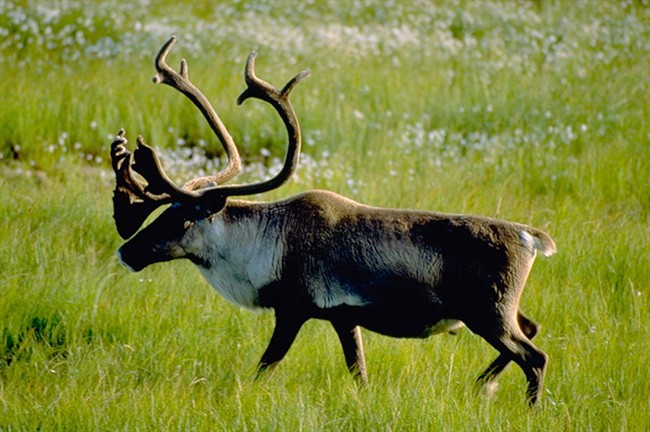OTTAWA – Environment Minister Catherine McKenna is being sued for failing to tell Canadians how the country’s woodland caribou are being protected.

The Canadian Parks and Wilderness Society filed an application for judicial review in Federal Court in Montreal today.
Lawyer Frederic Paquin told a news conference in Montreal that the Species at Risk Act requires the environment minister to “form an opinion about whether or not the critical habitat of the woodland caribou is protected.”
“She was supposed to form that opinion more than four and a half years ago and she failed to do so,” said Paquin. “She is quite late.”
READ MORE: Alberta’s caribou recovery plan draws criticism from environmentalists
The original failure to report occurred under the previous government, but there have also been no reports since the Liberals and McKenna took office in 2015.
The woodland caribou habitat was publicly identified by Environment Canada in 2012. The Species at Risk Act says once the habitat of a species at risk is identified, the minister of environment has six months to determine if any part of that habitat is unprotected. Every six months after that, the minister is to produce a report on the progress towards protecting it until full protection is achieved.
The wilderness society argues there have been no reports at all since 2012.
Eric Hebert-Daly, national executive director for the Society, said this isn’t just about producing reports for the sake of reports. The purpose of the reports is to drive a work plan to actually protect the animals.
- Ontario First Nation declares state of emergency amid skyrocketing benzene levels
- Singh mulls TikTok return as U.S. nears potential ban over security fears
- More financial institutes are offering crypto-services, survey shows
- Possible TikTok ban in U.S. looms after Biden signs bill, setting up legal fight
He said the caribou are an “umbrella species.” Protecting their boreal forest habitat would also protect the habitat of many other species, as well as fresh water sources and carbon sinks which help combat climate change.
“When we do what is right for the caribou, we do what is right for ourselves,” he said.
READ MORE: Wildlife group calls on federal government to stop turning pastures over to prairie provinces
McKenna’s office has not yet responded to a request for comment.
The woodland caribou habitat spans nine provinces and territories. Historically, their range covered more than half of present-day Canada, but they now occupy about 2.4 million square kilometres, about half their 19th century territory. They used to be found as far south as the northern United States in places like Washington, Idaho, Minnesota, Michigan and parts of New England.
The largest threat to the caribou is habitat loss, which has driven down the population. Industrial development remains the largest threat to the habitat, which is mostly on non-federal land.
The species was designated in 2002 as threatened by the Committee on the Status of Endangered Wildlife in Canada. In 2011 Environment Canada estimated there were about 34,000 woodland caribou in 51 ranges in nine provinces and territories from Newfoundland to the Yukon.



Comments